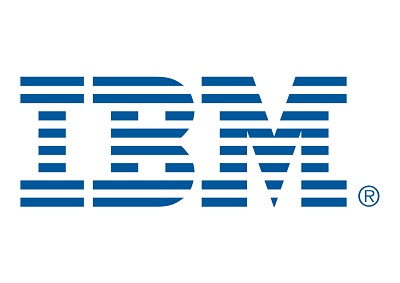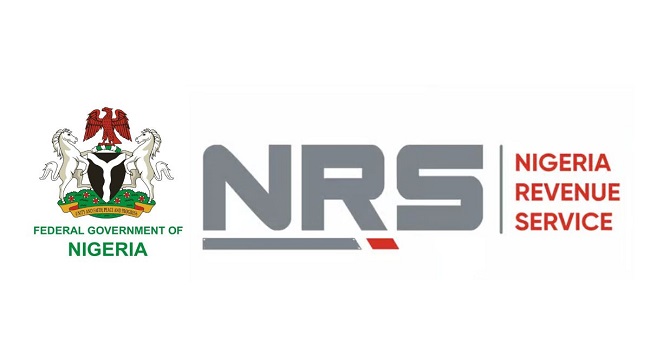E-Financial
Okonjo-Iweala Calls for Social Protection Measures for Africa

Dr. (Mrs) Ngozi Okonjo-Iweala, Nigeria’s Finance and Coordinating Minister of the Economy said that despite Africa’s recent strong growth and rising middle class, many poor households are being left behind.
According to her the gap between the rich and the poor is widening, which calls for an introduction of a social protection measures targeting these poor households.
Delivering a keynote address during Harvard Africa Business Club Conference, Okonjo-Iwuala cited the Arab Spring revealed the rising inequality and youth discontent could have serious political consequences.
The Minister said: “In Africa, we must take deliberate actions to address this by introducing social protection measures, which target these poor households. In Nigeria, we recently introduced the Community Services Scheme which aims at engaging unskilled youth in labor-intensive activities, and also a Graduate Internship Scheme. About 119,000 youth across the country are to be engaged in the first quarter of this year.”
“Just last week, The Financial Times newspaper reported cheekily that: There is a second scramble for Africa under way…Nigerian stocks have returned almost 63 percent in US dollar terms during the past 12 months, Kenya’s Nairobi All-Share index has returned 46 percent and Ghana’s market has climbed more than 17 percent”
“The African middle class has tripled since the 1980s with a total size of about 313 million people or 34 percent of the population. This middle class is growing largely because of sustained economic growth, more salaried jobs and the growth of the services sector. So I am convinced that there is an emerging story on Africa today. The question is: What role would each of you play in this new story?”
“Despite Africa’s recent strong growth and rising middle class, many poor households are being left behind, and the gap between the rich and the poor is widening. As the Arab Spring has taught us, rising inequality and youth discontent could have serious political consequences.”
She urged African leaders to build institutions which promote transparency and accountability in the management of the resource revenues.
“In Nigeria, we are building and maintaining institutions for managing our natural resources. Today, we have built a buffer of excess crude savings of about $9 billion, while establishing a Sovereign Wealth Fund with an initial capitalization of $1 billion. Clearly, transparency and fighting corruption will be critical to harness as much of our domestic resources as possible,” The Coordinating Minister of Economy said.
The conference which had Honorable Miles Sampa,dDeputy financemMinister, Zambia, Professor Adebowale Ibidapo Adefuye, Nigerian ambassador to the United States,Mr. Jean-Louis Ekra, President of the African Export-Import Bank, Mr. Acha Leke, head, McKinsey Lagos Office, Professor Wole Soboyejo, president and provost, African University of Science and Technology, Mr. Leslie Nelson, managing director, General Electric West Africa, Ms. Louisa Mojela, chairman and CEO, WIPHOLD, a prominent black and women focused investment group in South Africa in attendance, was tagged: Redefining Africa
E-Financial
Nigeria’s VAT Jumps 34%, CIT Soars 48% to ₦14trn in 9M’25 – NBS

Nigeria’s non-oil tax collections posted robust growth in the first nine months of 2025, with Value Added Tax (VAT) rising 34 per cent to ₦6.4 trillion and Company Income Tax (CIT) jumping 48 per cent to ₦7.72 trillion, bolstering federal revenue amid oil price volatility.

NBS
Data from the National Bureau of Statistics (NBS) showed VAT climbing from ₦4.77 trillion in 9M’24, reflecting stronger domestic consumption and imports. Quarterly trends indicated a slight 1.4 per cent dip to ₦2.03 trillion in Q2’25 from ₦2.06 trillion in Q1’25, followed by a 10.66 per cent rebound to ₦2.28 trillion in Q3’25—a 28.1 per cent year-on-year gain.
In Q3’25, local VAT hit ₦1.12 trillion, foreign VAT ₦680.23 billion, and import VAT ₦479.79 billion. Sectorally, Administrative and Support Services led with 89.28 per cent quarter-on-quarter growth, trailed by Arts, Entertainment and Recreation (82.49 per cent) and Human Health (32.4 per cent). Real Estate contracted sharply by 51.33 per cent. Manufacturing dominated contributions at 25.89 per cent, followed by Information and Communication (18.77 per cent) and Mining/Quarrying (14.85 per cent).
CIT followed suit, surging from ₦5.22 trillion in 9M’24. It stood at ₦1.98 trillion in Q1’25, leaped 40 per cent to ₦2.78 trillion in Q2’25, and grew 5.7 per cent to ₦2.96 trillion in Q3’25—a 67.19 per cent year-on-year rise. Domestic CIT reached ₦1.21 trillion in Q3, while foreign CIT hit ₦1.75 trillion, underscoring multinational firms’ role.
Economists attribute the uptick to improved tax administration, digital tracking, and post-reform consumption, though sectoral disparities signal real estate headwinds. The gains support President Tinubu’s revenue diversification drive, reducing oil dependency as global crude fluctuates.
NBS data highlights non-oil taxes’ potential to fund infrastructure and social programmes, with analysts eyeing sustained momentum into 2026.
E-Financial
SEC Revokes Registration of Kensington Agro Trading Limited

Securities and Exchange Commission (SEC) has revoked the registration of Kensington Agro Trading Limited as a capital market operator with immediate effect.

In a public notice issued by the Commission, the regulator announced that Kensington Agro Trading Limited’s registration as a Commodity Broker/Dealer and Collateral Manager has been withdrawn, effectively stripping the company of its authority to operate within Nigeria’s capital market.
According to the notice, the revocation was carried out pursuant to the powers vested in the Commission under Section 61(6) of the Investments and Securities Act, 2025, as well as Rule 34(1) of the SEC Rules and Regulations 2013, as amended.
The SEC stated that the decision takes immediate effect and urged all stakeholders to take note of the development.
“Accordingly, commodity exchanges, the investing public, commodity traders, and all capital market stakeholders are advised to discontinue capital market-related dealings with the company,” the Commission said.
The directive means that Kensington Agro Trading Limited is no longer authorised to engage in any capital market activities under the regulatory oversight of the SEC. Market participants have been cautioned to avoid entering into transactions or maintaining business relationships with the firm in its former capacity as a registered operator.
While the notice did not specify the reasons for the revocation, such regulatory actions are typically taken in line with the Commission’s mandate to ensure compliance with extant laws, protect investors, and maintain market integrity.
The SEC, headquartered in Abuja, reiterated its commitment to upholding transparency, investor protection, and strict adherence to regulatory standards in Nigeria’s capital market.
The Commission’s action underscores its continued enforcement drive aimed at sanitizing the market and ensuring that only duly registered and compliant operators are permitted to function within the ecosystem.
Stakeholders and members of the public are encouraged to verify the registration status of capital market operators through official SEC channels before engaging in investment-related transactions.
E-Financial
NRS Targets N40trillion in Tax, Royalty Revenue in 2026

Nigerians’ commitment to paying taxes has produced historic results. In 2025, voluntary compliance propelled the Nigeria Revenue Service (NRS) to collect a record ₦28.3 trillion, exceeding its target of ₦25.2 trillion and setting the stage for an even more ambitious 2026.

Dr. Zacch Adedeji, the Executive Chairman of NRS, while hailing the development recorded in 2025, announced that the service is targeting ₦40.7 trillion in tax and royalty collections for 2026, a 44% increase over last year.
The projection reflects reforms consolidating petroleum and mineral royalties under the NRS, streamlining a process previously handled by over 60 federal agencies, including the Nigerian Upstream Petroleum Regulatory Commission and the Nigeria Customs Service.
“With legislative support, we are confident of achieving this,” Dr. Adedeji said at a stakeholders’ roundtable organized by the House of Representatives Committee on Appropriations in Abuja.
The reforms, anchored in the Nigeria Revenue Service Establishment Act, 2025, signed by President Bola Tinubu, formalized the NRS and launched the most comprehensive tax overhaul in decades. By consolidating fragmented revenue collection, the NRS has strengthened efficiency, reduced compliance burdens, and expanded the tax base, particularly in non-oil sectors.
Finance Minister Mr. Wale Edun emphasized that the reforms aim to reduce reliance on Ways and Means financing and unsustainable subsidy arrangements funded by the Nigerian National Petroleum Company Limited.
Meanwhile, Chairman of the House Committee on Appropriations, Rep. Abubakar Bichi, during the stakeholders’ roundtable organized by the House of Representatives Committee on Appropriations in Abuja, assured that legislative oversight will ensure credibility, transparency, and accountability in revenue collection and enforcement.
The NRS’s new mandate signals more consistent enforcement, reduced regulatory overlap, and closer scrutiny of non-oil sectors and mineral operators. For investors, the reforms indicate a centralized revenue administration and a broader, more reliable tax base, potentially reducing macroeconomic volatility if targets are met.
Dr. Adedeji, speaking at the Nigeria Deposit Insurance Corporation (NDIC) Annual Strategic Stakeholders Retreat, emphasized that Nigeria’s journey toward a one-trillion-dollar economy depends heavily on trust.
“Strong bank capitalization and effective enforcement give confidence to the system. When people know their funds are safe, whether one naira or billions, they are more willing to save, invest, and participate in nation-building,” he said.
The NRS has also strengthened collaboration with key stakeholders, including a courtesy visit from KPMG executives, who commended the leadership and timely implementation of new tax laws, pledging continued professional engagement in support of national economic growth.
In another strategic engagement, Dr. Adedeji and Minister of State for Finance, Dr. Doris Uzoka-Anite, met with Central Bank of Nigeria Governor, Olayemi Cardoso, to align fiscal and monetary policies, further promoting sustainable national development.
With strong momentum from 2025 and a clear vision for 2026, the NRS aims not only to boost domestic revenue but also to strengthen public trust, enhance compliance, and drive national development. As Dr. Adedeji emphasized, “Your compliance strengthens our economy and drives national development.”
Nigeria’s taxpayers can take pride in their role in this historic achievement, and in shaping the country’s economic future.

 E-Financial3 days ago
E-Financial3 days agoIran-Israel-US Conflict and CBN’s FX Gains: A Stress Test for Nigeria’s Monetary Stability

 Telecom2 days ago
Telecom2 days agoSunil Bharti Mittal Conferred GSMA Lifetime Achievement Award for Transforming Global Telecommunications

 Telecom2 days ago
Telecom2 days agoWhy Digital Trust Matters: Secure, Responsible AI for African SMEs?

 General News2 days ago
General News2 days agoKrishnan Exits Africa Data Centre to Embark on Professional Chapter

 E-Business2 days ago
E-Business2 days agoJumia Tech Week 2026 Begins with Tech Deals on Smartphones, Electronics, and Everyday Technology

 General News3 days ago
General News3 days agoLeo Stan Ekeh at 70; thanks Tinubu, Obasanjo, Nigerians, Global Tech Community

 Broadcasting2 days ago
Broadcasting2 days agoNCAA Orders Overland Airways to Refund VAT Charged on 2025 Tickets

 Telecom2 days ago
Telecom2 days agoHouse Probes Fintech Regulation via Public Hearing on New Commission Bill













